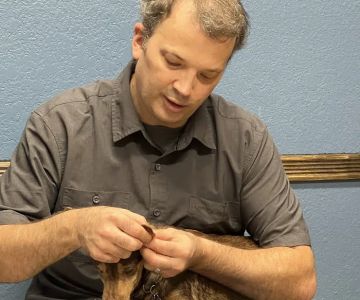The Role of a Veterinary Technician in Pet Care
- Introduction to Veterinary Technicians
- Key Responsibilities of Veterinary Technicians
- Skills Required for Veterinary Technicians
- Real-Life Impact of Veterinary Technicians
- Working with Veterinary Technicians at Hidden Brook Veterinary
Introduction to Veterinary Technicians
Veterinary technicians play a crucial role in the health and well-being of pets, working alongside veterinarians to provide comprehensive care. Often referred to as the "unsung heroes" of the veterinary field, these professionals are the backbone of a veterinary practice, ensuring pets receive high-quality medical attention. From assisting in surgeries to administering medications, veterinary technicians are essential to daily operations and contribute significantly to the overall experience of both pets and their owners.
Key Responsibilities of Veterinary Technicians
Veterinary technicians are responsible for a wide array of tasks that are essential to the smooth operation of a veterinary clinic. Below are some of the key duties that define their role:
- Assisting with Medical Procedures: Veterinary technicians prepare pets for surgeries, assist during procedures, and monitor anesthesia levels. Their expertise ensures that pets are safe and comfortable during their medical treatments.
- Laboratory Work: Technicians perform diagnostic tests, such as blood work, urinalysis, and fecal exams. They also prepare samples for analysis and communicate results to the veterinarian for accurate diagnoses.
- Administering Medications and Treatments: Veterinary technicians are responsible for administering medications, vaccinations, and other treatments as prescribed by the veterinarian. They monitor pets for any reactions and ensure proper care is followed.
- Client Education: One of the key roles of a veterinary technician is to educate pet owners about the health and care of their pets. They provide guidance on diet, exercise, grooming, and behavioral issues to ensure that pets maintain a healthy lifestyle.
- Monitoring Pet Recovery: After surgeries or medical treatments, veterinary technicians closely monitor the recovery of pets. They track vital signs and manage post-operative care to ensure pets heal properly and without complications.
Skills Required for Veterinary Technicians
To excel in their roles, veterinary technicians must possess a variety of technical, medical, and interpersonal skills. Here are some essential skills:
- Medical Knowledge: Veterinary technicians must have a strong understanding of animal physiology, medical procedures, and treatment protocols to assist in diagnosing and treating animals effectively.
- Attention to Detail: Accuracy is paramount when handling medical equipment, administering medications, and conducting tests. Veterinary technicians must be thorough and meticulous in all aspects of their work.
- Communication Skills: Veterinary technicians need excellent communication skills to explain medical procedures and treatment plans to pet owners. Clear communication ensures that pet owners understand how to care for their pets at home.
- Physical Stamina: The role of a veterinary technician can be physically demanding, requiring technicians to lift animals, stand for long periods, and assist with surgeries. Physical stamina is essential to keep up with the demands of the job.
- Empathy and Compassion: Veterinary technicians often work with pets that are in pain or discomfort. Showing empathy and compassion helps comfort both the animals and their owners during difficult times.
Real-Life Impact of Veterinary Technicians
Veterinary technicians make a significant impact on the lives of pets and their owners. For instance, imagine a pet dog that requires emergency surgery after an accident. A skilled veterinary technician would be instrumental in preparing the dog for surgery, monitoring anesthesia, and ensuring post-operative care. Without the technician's expertise, the veterinarian's work could be much more challenging, and the dog’s recovery could be jeopardized.
In another example, a pet owner might bring their cat in for a routine check-up. The veterinary technician would perform diagnostic tests and detect early signs of kidney disease. By catching the condition early, the technician helps ensure the cat receives timely treatment, which could extend its life and improve its quality of health.

2626 Van Buren Ave, Norristown, PA 19403, USA
See DetailsWorking with Veterinary Technicians at Hidden Brook Veterinary
At Hidden Brook Veterinary, our veterinary technicians are an essential part of our team, providing excellent care to every pet that walks through our doors. Our technicians work hand-in-hand with our veterinarians to offer the highest quality of pet care, ensuring that each pet receives the attention and treatment it deserves. Whether it’s through diagnostic testing, surgery assistance, or post-treatment care, our technicians ensure a seamless experience for both pets and their owners.
If you’re seeking expert care for your pet, consider visiting Hidden Brook Veterinary. Our dedicated veterinary technicians, along with our experienced veterinary team, are here to provide the best care possible for your beloved pet.










